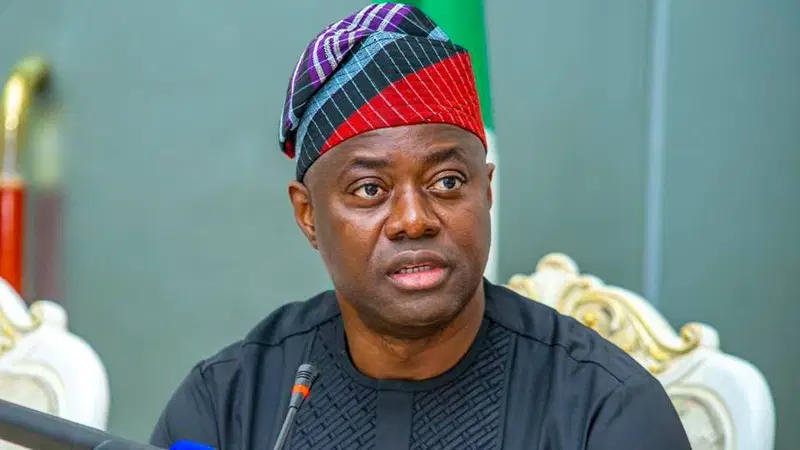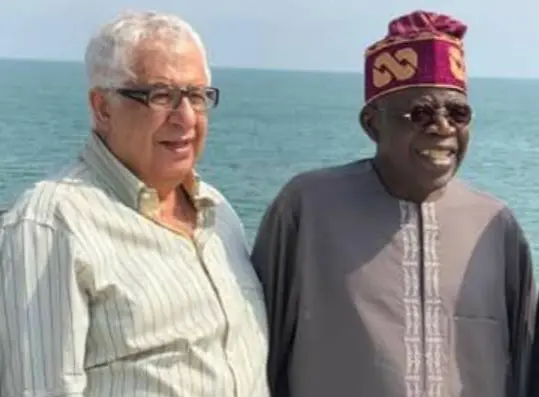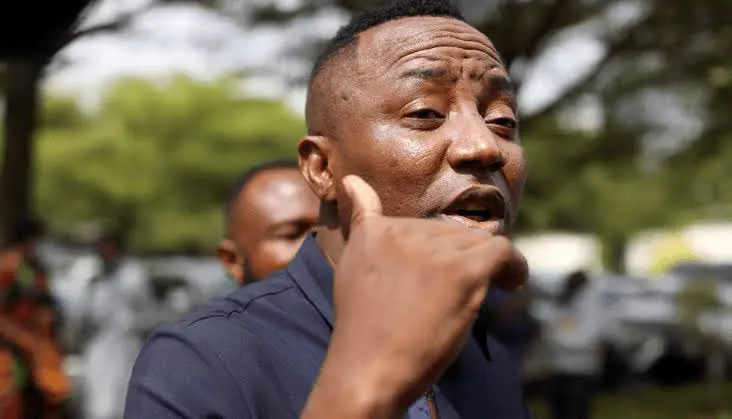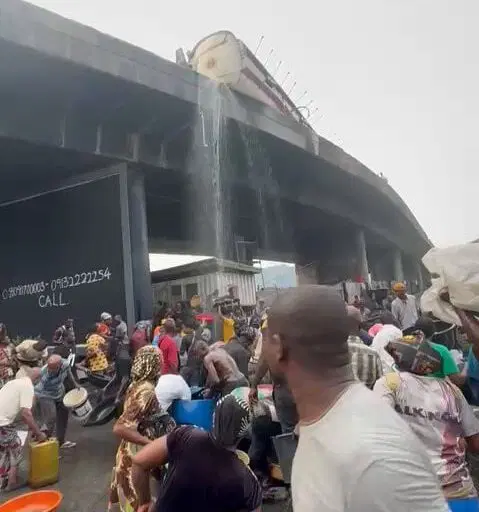
Except a miracle happens, Nigerians may be witnessing the last active days of the Peoples Democratic Party, PDP. Only a fundamental recalibration of the opposition can prove otherwise. Yet, given the nation’s political culture, the party appears all but finished, with only a few men still standing.
For context, the men are the governors, whose ranks have been depleted by a gale of defections never seen in Nigeria’s chequered political history.
In less than three years, Nigerians have witnessed the PDP shrinking from 11 governors as of May 29, 2023, to eight. The situation, which raised questions about their driving force, further depleted the ranks of the PDP to an embarrassing level.
Defiance
Despite the sweeping wave that has blown many of its governors into the ruling camp, a few within the PDP appear determined to hold their ground.
As the party’s most visible leaders at the state level, these governors seem resolved to either weather the storm or go down with the ship. Sunday Vanguard believes this stance underscores both their defiance and the magnitude of the crisis confronting the once-dominant opposition.
At the time President Bola came to power, the PDP controlled 11 states: Oyo, Adamawa, Bauchi, Rivers, Benue, Delta, Akwa Ibom, Enugu, Taraba, Bayelsa, and Plateau.
But within months, a combination of political pressure, patronage, and opportunism thinned the ranks.
Currently, those who have dumped the party, citing what analysts described as selfish reasons include Delta State Governor, Sheriff Oborevwori, Governor Peter Mbah of Enugu State, Bayelsa State Governor, Duoye Diri, and Umoh Eno of Akwa Ibom.
Govs
The rapid attrition of PDP governors since 2023 has not been merely a matter of numbers, it signals a deeper structural crisis within the party. Governors, traditionally among the strongest anchors of any party’s federal structure, have become liabilities rather than stabilisers.
Rather than rallying grassroots support, many have opted for self-preservation via defection. The message this sends is corrosive: if governors can jump ship, what loyalty remains among the rank and file? The defection tide thus undermines the PDP’s institutional coherence, weakening its bargaining power and public credibility ahead of the 2027 contests.
One-party
Furthermore, this trend has knock-on effects on the opposition ecosystem more broadly. If the PDP collapses into a shadow of itself, then Nigeria’s political balance tips dangerously toward single-party dominance. The opportunistic nature of many defections, seemingly driven by calculations of access to federal spoils rather than ideological conviction, also undermines the concept of opposition.
It means the ruling party gains not just numbers but the appearance of inevitability, which in turn suppresses contestation, dampens internal renewal in the opposition, and slowly erodes democratic vibrancy.
Meanwhile, in the midst of this stand a few men, who many argue may either win or perish with the party.
Seyi Makinde
If there is one PDP governor who has shown both resilience and independence, it is Engineer Seyi Makinde of Oyo State. Widely regarded as the party’s last stronghold in the South-West, Makinde’s political journey mirrors a tale of calculated pragmatism, self-assurance, and deep grassroots appeal.
Since 2019, Makinde has defied the odds in a region dominated by APC’s political machinery. Even as his fellow Southern PDP leaders like Federal Capital Territory, FCT, Minister, Nyesom Wike and Samuel Ortom wavered, Makinde maintained a careful balance between cooperation with the ruling government and loyalty to his party. This strategic dexterity has earned him admiration across political divides.
Makinde’s reason for staying in PDP appears less about ideology and more about legacy and autonomy. As one of the most financially independent governors in Nigeria, he doesn’t rely heavily on federal handouts or political godfathers. His administration’s focus on infrastructure, education, and security reforms in Oyo has created a performance-based legitimacy that insulates him from pressure to defect.
Politically, Makinde seems to be positioning himself as the new moral face of the opposition, pragmatic, youthful, and development-oriented. His frequent calls for policy continuity and inter-party cooperation have made him look like a bridge between the old PDP and the emerging multiparty future Nigeria needs.
Observers say that Makinde’s staying power lies in his ability to speak the language of governance rather than grievance. Unlike some of his PDP peers who constantly trade blames, Makinde prefers measurable performance and fiscal discipline as his political defense.
However, being the lone PDP governor in the South-West comes with enormous weight. The regional APC network constantly seeks to isolate him politically, especially ahead of 2027. Yet, his increasing national profile, particularly his influence among technocrats and young voters, gives him a distinct identity.
Some insiders say Makinde may eventually lead a new-centre opposition coalition, should the PDP fail to reinvent itself. For now, he remains steadfast, urging his colleagues to rebuild the party “from the grassroots up,” rather than chasing power through opportunistic defections.
In many ways, Makinde symbolizes what the PDP could have been — disciplined, policy-driven, and people-focused. His survival within the party may well determine whether the PDP can retain any serious foothold in southern Nigeria beyond 2027.
Consequential
Makinde now stands as perhaps the most consequential figure in what remains of the PDP’s southern flank. His political evolution within the party has been complex, at once rebellious and loyal. As one of the influential G5 governors who openly opposed Atiku Abubakar during the 2023 general election, Makinde’s defiance nearly fractured the PDP’s campaign structure. Yet, paradoxically, in the post-election period, he has emerged as one of the few keeping the party from total collapse in the South.
Despite being a member of the G5 governors who didn’t support the party in 2023, Makinde has shown uncommon steadiness in defending the PDP against the divisive antics of Nyesom Wike, the former Rivers governor turned Federal Capital Territory Minister.
While Wike has openly fraternised with the APC and attempted to fracture the PDP’s base through influence operations in Rivers and beyond, Makinde has maintained a calibrated loyalty. His refusal to follow Wike’s footsteps into open defection underscores his understanding of the larger implications of PDP’s disintegration, not just for opposition politics, but for Nigeria’s broader democratic balance.
Altruistic
Political insiders say Makinde’s decision to hold the line is not entirely altruistic. There are whispers that he may be eyeing the PDP presidential ticket in 2027, especially if the North remains divided between Atiku and other contenders. His political poise, administrative record in Oyo, and ability to retain public goodwill have placed him in an enviable position within the opposition fold.
Nevertheless, some analysts see him not merely as an ambitious politician but as the South’s strongest hope of keeping the PDP relevant in the years ahead. Whether he can build the cross-regional alliances needed to achieve that remains the question, but for now, Makinde stands as the last steady pillar in a crumbling house.
Bala Mohammed
In Bauchi, Governor Bala Mohammed has emerged as the most experienced and strategically minded PDP leader in the North. A former senator and FCT minister, Bala is known for his political pragmatism and deep administrative understanding of the Nigerian system.
He resisted intense pressure to defect after 2023, choosing instead to consolidate PDP’s presence in the North-East through performance and inclusivity. His infrastructural renewal projects, especially in roads, healthcare, and education, have made Bauchi one of the best-governed northern states in recent years.
Bala’s critics accuse him of playing both sides — maintaining warm ties with the APC-controlled federal government while keeping the PDP flag aloft in Bauchi. But his defenders say that’s precisely why he remains valuable: he understands survival politics without losing identity.
Within the PDP hierarchy, Bala now plays the role of elder statesman, frequently mediating disputes between Atiku’s loyalists and southern blocs. His calm temperament and political maturity have earned him respect across the aisle.
Analysts believe Bala’s continued presence in PDP is not just for symbolism. It’s part of a long-term strategic calculation to keep the party alive in the North-East and maintain bargaining power ahead of 2027. Should PDP ever recover, Bala Mohammed’s name will be among those credited with preventing its total collapse.
Ahmadu Fintiri
Governor Ahmadu Fintiri of Adamawa represents the new generation of pragmatic northern leaders who blend traditional politics with modern governance. His tenacity during the 2023 elections, when he fought off a fierce APC challenge led by Senator Aishatu “Binani” Dahiru, earned him national acclaim.
Unlike others who left PDP under pressure, Fintiri doubled down — rebuilding his local alliances and reaffirming the PDP brand as the state’s dominant political force. His political staying power is rooted in strong youth mobilization, inclusive appointments, and a modest but consistent record of development.
Fintiri’s decision to stay in PDP is guided by loyalty and conviction that a functioning democracy needs balance. He believes opposition parties play a crucial role in ensuring accountability. “It’s easy to join the winning side,” he reportedly told associates, “but leadership is about standing firm when it matters.”
Fintiri’s brand of quiet strength may position him as a future power broker in the opposition. With Bala Mohammed as the northern elder and Makinde as the southern reformist, Fintiri completes the trinity of PDP’s last credible governors.
Sunday Vanguard learnt that apart from these men, some of the remaining governors may soon dump the party, a move that could further push the country toward a one-party state. Those still standing include Governor Agbu Kefas of Taraba State, Dauda Lawal of Zamfara, Caleb Muftwang of Plateau State, and Ademola Adeleke of Osun State.
VANGUARD.




